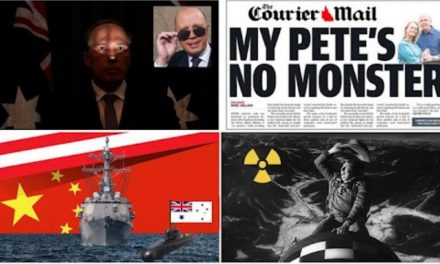In Afghanistan, local interpreters who worked with US and Australian forces plead for help to escape. Photo: GETTY IMAGES
A decade ago, the United States’ war in Afghanistan became its longest ever foreign war, surpassing the war in Vietnam. Tied as we are to American military adventurism, that made it Australia’s longest ever foreign war, too.
In 2010, the war in Vietnam was the benchmark by which both nations measured and understood their other catastrophic wars. More than 10 years later, the comparison remains. And there are reasons it feels so accurate.
President Joe Biden announced the United States’ withdrawal from Afghanistan a few months ago, and the Morrison government soon followed suit. But the stories they told about why the withdrawal is happening differed in important ways.
In the United States, the reasoning was straightforward: the war had already dragged on for too long, and there was no justification for its continuation. When we’re so accustomed to hearing about how the US is a defender of freedom and democracy in the world, Biden’s reasoning seemed uncharacteristically resigned.
He spoke not of freedom or high-minded ideals but of his responsibility to end a war that had spanned four presidential administrations. Faced with the accusation that he was abandoning America’s commitment to the people of Afghanistan, Biden was unapologetic.
Asked if the United States, and he personally, would bear responsibility should the Taliban regain control of the country, he was unequivocal. He felt, he said, “zero responsibility”. This would be a full, unconditional withdrawal.
That withdrawal happened very quickly, in the end. Biden’s deadline was, fittingly, September 11 this year, but American troops are mostly already gone. They left quickly and quietly, no doubt hoping to avoid the kind of iconic images of rooftop helicopter evacuations that now characterise American withdrawal from its second-longest foreign war.

An Air America helicopter crew member helps evacuees up a ladder in Saigon in April 1975. Photo: HUGH VAN ES
The obvious comparisons to the war in Vietnam could not have been lost on the current president. But in Biden’s case, the historical comparison lies not with the president who ended that war but with the one who didn’t: fellow Democrat Lyndon Baines Johnson.
Johnson’s catastrophic failures in Vietnam destroyed his presidency and dramatically constrained his domestic agenda. Biden, it seems, was intent on not making the same mistake, making the calculation that American fatigue with the “forever war” was stronger than any latent desire to be seen as the guardian of freedom and democracy in the world.
When it came to the withdrawal, the Australian government was all too happy to outsource decision-making to the Americans, just like it was during the Vietnam War. But unlike Biden, the Australian prime minister continued a long tradition of justifying American military interventionism, and Australian support of it, in grandiose terms.
PLEASE HELP US CONTINUE TO THRIVE BY BECOMING AN OFFICIAL FOOTYOLOGY PATRON. JUST CLICK THIS LINK.
Echoing Richard Nixon’s invocation of “peace with honour” in Vietnam, Australian Prime Minister Scott Morrison insisted that “freedom is always worth it” and that “the world is safer” as a result of the war.
That freedom and safety, as usual, is for us, and not for the people of Afghanistan. It barely even extends to those Afghans who helped both the American and Australian campaigns directly.
Both the US and Australia have, rightly, faced significant criticism for failing to do everything possible to protect the local translators who worked with US and Australian forces and who were, by all accounts, integral to those operations.
Those translators – “Locally Engaged Employees” in the jargon of Western military interventionism – are now targets, along with their families, and many of them are desperate to get out.
The Biden administration is looking to spend spend $1 billion on evacuations – thousands have already been relocated either to the mainland United States or military bases elsewhere. The Australian government has been much slower, and has faced significant criticism for it.
Visa processing, always deliberately slow and arduous, was slowed even further when the Australian government shuttered the Australian Embassy in Kabul. Former LEEs face an atmosphere of distrust, forced to prove they did indeed work for Western forces, which should, one would expect, have already known whether they did or not.
That was too much even for the architect of Australia’s involvement. Former Prime Minister John Howard weighed in, telling SBS News that granting asylum to former LEEs “is a moral obligation we have. And it was a moral obligation that was shamefully discarded many years ago when we pulled out of Vietnam. I do not want to see a repetition of that failure in relation to Afghanistan.”
Unsurprisingly, Howard didn’t mention the repetition of other historic failures during the war, and in its aftermath. That would mean examining the comparison between the wars in Afghanistan and Vietnam too closely, and asking too many questions about why those failures echo each other so clearly.
While the Australian and American approaches to withdrawal might vary by degree, they share much in common. The historical comparisons are ever present, but any real “lessons” that history might offer are ignored.
In Australia and the United States, there is no real effort to understand and reform the processes and structures that dragged us into both the longest and the second-longest foreign wars we’ve ever been involved in.
Even this year, the 70th anniversary of the official security treaty between Australia and the United States and the 20th anniversary of the 9/11 attacks, neither the US nor Australian governments have shown any interest in understanding why it is that the wars in Afghanistan and Vietnam mirror each other so closely.
In their refusal to engage with the history of failure, both the Morrison government and the Biden administration shut down the possibility of any kind of learning that involves more than just mild regret. And so the risk that they will be repeated remains.











